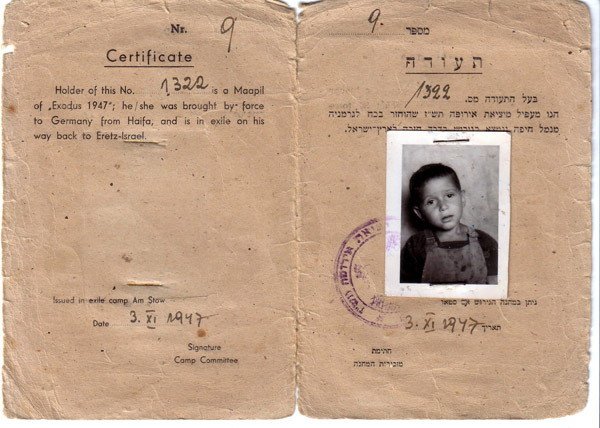By David E. Kaplan
Appeared first in METRO a supplement of the JPost
Launched in 1928 the ‘President Warfield’ initially plied the Chesapeake Bay between Baltimore and Norfolk. Nearly two decades later, worn-out and battered and appearing to one observer as “a matchbox splintered by a nutcracker” the ship, renamed the ‘Exodus 1947’, embarked on its final voyage and launched a nation.
Now on the 60th anniversary of the sailing of the Exodus, Metro spoke to a father and son who were amongst the 4515 passengers. Eli Agulnik who today resides with his South African born wife Zinky in Kfar Saba was a three year old boy at the time. While most immigrants have a story of how they first arrived in Israel, very few could claim that theirs was a lengthy journey that appeared as daily newspaper headlines around the world. How many have kept their El Al tickets of when they first arrived? Eli proudly shows Metro his Exodus boarding pass.
In 1947 the Agulnik family made their way from the Russian-China border to a DP camp in Germany. “It took months covering the journey by train, foot and cart. My father, Boris had been a colonel in the Russian army and my mother, after marrying my father, had moved east and so avoided the Nazi invasion.”
The rest of the family had been less fortunate.
“My grandfather Motel crawled to his grave,” relates Eli. “When the Germans arrived and began rounding up the Jews, they had little patience for the elderly. They threw saba out the window from his second floor apartment. Surviving the fall, they made him crawl to the pit where they shot him together with the rest of the residents of his shtel.” The family stories were horrifying. “My aunt had suffocated her child trying to stop the crying. She was with a group of Jews hiding in a sewer with the Gestapo searching above.” She survived. So must have the nightmares.
The Agulnik family arrived at Poking Pine City, which was the second largest DP camp in Germany after Belsen. Their plan was to reach Palestine. “There my sister Yudit was born and where I finally had my Brit Milah at age three. There was no anesthetic and they said I screamed in Russian, “Mommy, mommy it’s painful”. Afterwards I am told I used to proudly go around and boast, “Now I am a Jew and I am going to Israel.”
The young boy’s yearnings were about to come true. But like a cruel joke, its punch-line sickening. Not unlike the biblical saga, the 1947 ‘Exodus’ too, would take longer than expected. “Who could have foreseen,” sighs Eli “that no sooner had we reached Eretz Yisrael we would be dragged back to of all countries, Germany and to a British camp where we would be provided soap that read – “Made from the fat of Jews”.
But this was still months away.
In the camp, Agulnik senior was approached by the Hagana. Having been a battle-hardened colonel in the Soviet army, he was needed in Palestine. The family boarded a truck as part of a convoy bound for Sete, a port near Marseilles in France. From there, they would be joined by other Holocaust survivors and Displaced Persons to board the ‘President Warfield’ bound for Palestine. “At the German-French border we were told to get out the trucks and cross by foot. Scared that they would not allow us through with a three-month-year-old baby, my mother hid little Yudit in a box and left her on the truck. At the other side, after we had proceeded through the lengthy nerve-wracking process at passport control, my anguished mother rummaged through the boxes until she found my sister, crying from hunger and fear. One of the French soldiers noticed the commotion, but when he saw her breastfeeding Yudit, he tactfully looked away.”
‘Looking away’ however, was something the British found they were unable to do. After setting sail on the 11th July, the ‘President Warfield’ soon had company. The British Royal Navy began tailing the vessel despite flying the Columbian flag. Soon there was little point in pretence. The destination was Palestine and the ship under the command of a young American Ike Aharonowitz and his mainly American crew of Jewish ex-servicemen was ready to convey a message to the outside world. The first outsiders to be exposed to that message were probably those looking through binoculars’ from the bridge of one the British destroyers.
“What the bloody hell!” may well have been the initial outcry following a zooming in on the bold lettering: EXODUS. If some of those Royal Navy officers were unfamiliar with the Old Testament to understand the significance of the ship’s new name, the lowering of the Columbian flag followed by the hoisting of the Israeli one graphically joined the dots. A drama was unfolding at sea and the stage was set for a showdown that would determine not only the nautical course of a ship, but the political destiny of a nation.
“What was different about the Exodus,” explained Eli “was the massive number of passengers on board. Generally, the ships that had been bringing in illegal immigrants before were relatively small carrying at the most, a few hundred passengers. With over 4,500 on our vessel, the Hagana had upped the ante. The stakes were high!”
The British government wanted this evolving drama to reach a finale of its choosing. So they hijacked the script, by ordering the hijack of a ship!
“One of the destroyers came alongside and called over the loudspeaker to our captain ordering him to sail for Haifa,” relates Eli’s father, Boris a resident of Haifa. “As time passed, they could see that the Exodus was not changing course. The instructions from the Hagana were to sail directly to Tel Aviv, as far away from the British naval base at Haifa. The British then made their move and with scant regard to international law.”
Some forty kilometers from shore and outside the jurisdiction of Palestine, the British destroyers surrounded the Exodus – one even ramming into it. Reminiscent of Caribbean style piracy, they forcibly boarded the Jewish vessel, caring little for the 655 children on board, many of whom were war orphans. Challenged by the Exodus’s passengers and crew, a fight developed where three shipmates, including 1st mate William Bernstein – a US sailor from San Francisco – was killed. “The British had truncheons and were bludgeoning left’ right and center. What did we have to fight with?” sights Boris, “Our bare fists and some hopelessly fought with tin cans. Ike, our captain, lost his finger in the fighting.”
In the end, the ship was taken over by the British who then towed their battered and bruised ‘prize’ into Haifa port. Little did the Mandate Authority realize that they were providing the images that would appear in picture and prose leading to a diplomatic swing of sympathy towards the Jewish People. These were the birthpains of the emerging Jewish state.
Ruth Grubber, an American journalist was waiting on the wharf as the Exodus limped into harbor. In a dispatch she described her first impressions. “In the torn, square hole, as big as an open, blitzed barn, we could see a muddle of bedding, possessions, plumbing, broken pipes, overflowing toilets, half-naked men, women looking for children. Cabins were bashed in; railings were ripped off and lifesaving rafts were dangling at crazy angles.”
The rafts must have been hanging very precariously, because one them dislodged from the Exodus and drifted to another ship lying in Haifa harbor, the ‘Drom Afrika’, which three months earlier had left Cape Town, South Africa with seven Jewish young men on board trying to reach Palestine illegally. Metro spoke to Issy (Greenberg) Granot, a retired architect, who was on board that day and helped lift the Exodus’s life-raft from the sea onto the deck of the ‘Drom Afrika’ – a former mine sweeper that had been converted into a fishing trawler to fool the British. “As we sailed into Haifa, we saw the Exodus being towed into port. We watched as the Holocaust survivors on board were transferred onto three British ships. That night Haifa port was alive with activity. Police launches patrolled the harbor, dropping depth charges to scare off Jewish frogman and search lights constantly swept the area. How excited we were to see at least one British ship used for transporting Jews from Palestine to Cyprus sink at the wharf.”
However the British had no intention of sending the Exodus passengers to Cyprus. “They wanted to make an example and humiliate us. What better way then by sending us back to Europe.” Exhausted from both the sea journey as well as the battle on board the Exodus, all 4,515 passengers were transferred like cattle to three freighters converted into caged prison ships – the Empire Rival, the Ocean Vigor and the Runnymede Park.
Also watching this ignoble spectacle of British governance were some members of the United Nations Special Committee on Palestine (UNSCOP). What they witnessed, they later revealed, influenced them to press for an immediate solution for Jewish immigration and the question of Palestine.
The next day the three ships left and in the crammed belly of the Empire Rival, was the Agulnik family. “The conditions on board were terrible. We lay crammed together in the bare hold of the freighter and the food was inedible. Nevertheless, under the command of the Haganah, we began to build an organization,” relates Boris. “It was decided that all passengers were to remain on board and not disembark when we arrived in France. We were repeatedly encouraged to resist. Even little Eli went all out to make a nuisance of himself. He used to climb all over the place, particularly on top of the makeshift toilets on the deck and then scream, “Englander, I’m here. Now come pull me down.”
Aside from his son’s pranks, there were the far more serious acts of resistance being organized by three Haganah agents that slipped on board with the other passengers. “No sooner were we out at sea, when one of them climbed the mast and removed the Union Jack, replacing it with the Star of David. If they could, they would have lynched the fellow. In the end they released him, never suspecting that he was a Hagana plant.”
“What we later found out was that the three Hagana chaps had brought a bomb on board. Unfortunately they had no timer, so they drew lots as to who would sacrifice himself should they decide to use the bomb.”
When the deportation ships arrived at Port-de-Bouc near Marseilles on August 2, the emigrants refused to disembark and the French refused to cooperate with the British attempts at forced disembarkation. “So the British Consul came on board and tried ‘friendly’ persuasion. If we voluntarily leave they will arrange French papers for us, find work and so on. People were booing and screaming. Some one shouted, “We know all about British promises”. It reached a head when a passenger brought a plate of that day’s food. “You call this food. Look at it. Can you tell the worms apart from the spaghetti?” The consul left in huff and following a hunger strike, the ships were ordered to proceed to the British-controlled sector of Germany. “I had word that during the time the consul came on board,” reveals Boris, “a clock was smuggled onto the ship to be used as timer for the bomb. The plan was that if we were ever forced to leave the ship that would be the time to explode it, once all the Jews were off.” That opportunity arose when the ship reached Hamburg and all the passengers were finally forced off the ship and sent to DP camps in Lubeck-Poppendorf. Boris recalls that “the British suspected something and conducted a search of the Empire Rival. We heard afterwards that they found the bomb in the engine room, removed it and placed it on a small dingy with the aim of dropping it somewhere safe in the sea. Reports filtered back that the bomb exploded on the dingy killing all the British personnel on board.”
The DP camp had a visitor one day – David Ben Gurion. “After he addressed the people, I introduced myself and we spoke in Russian,” relates Boris, who at that time knew no Hebrew. “BG spoke with such vigor. He assured me, “Don’t worry. There will very soon be a Jewish State, and you, the passengers of the Exodus will become its honorary citizens.”
This was a promise that was met.
In 1948, the Agulnik family returned not to Palestine, but to the new state of Israel. As coincidence would have it, the captain of their ship was Ike Aharonowitz, who had been their captain on the Exodus.
In 1958, Leon Uris wrote the book ‘Exodus’ based partly on the story of the ship, which became a best seller. One of the millions of readers around the world was a young girl in Cape Town, South Africa named Ziona ‘Zinky’ Wolffe, who was so inspired by the story that she remarked to her father, “One day, Dad, I will marry an Israeli who sailed on that ship.”
She did and they live today in Kfar Saba.
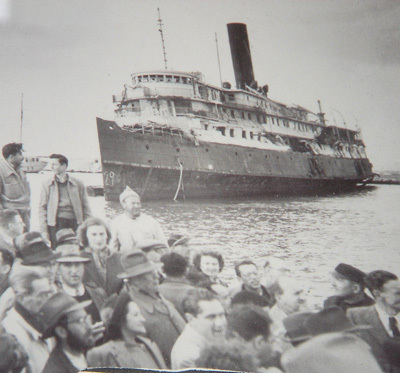
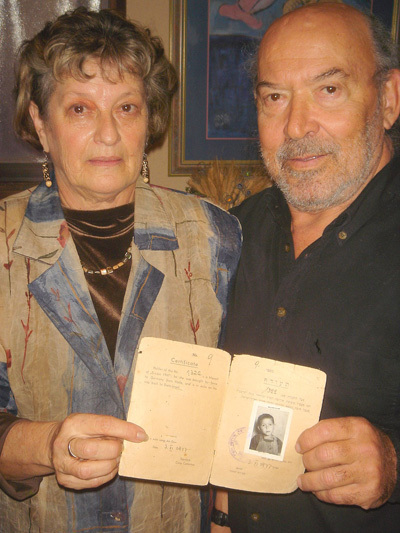
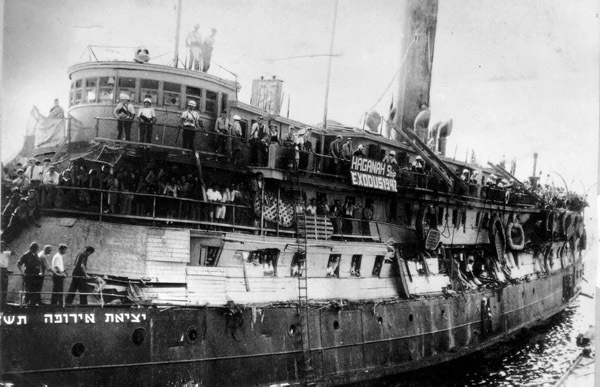

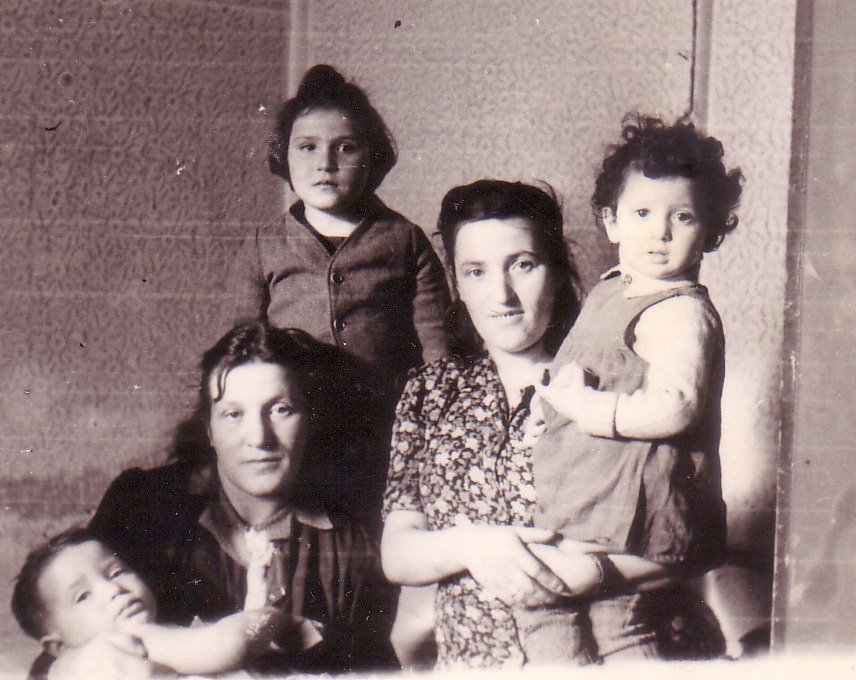
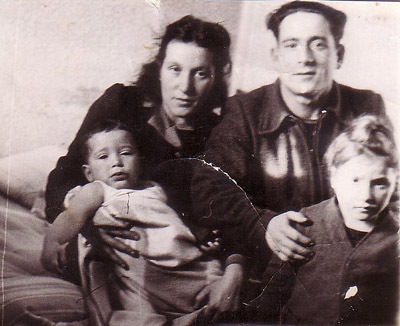
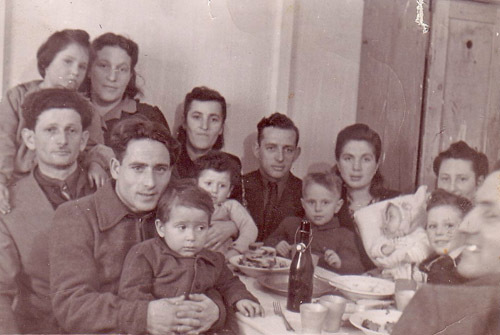
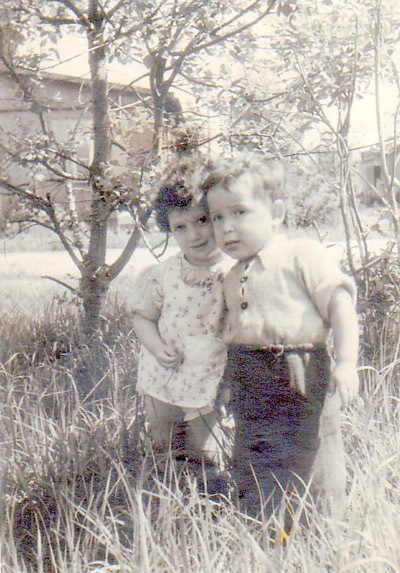
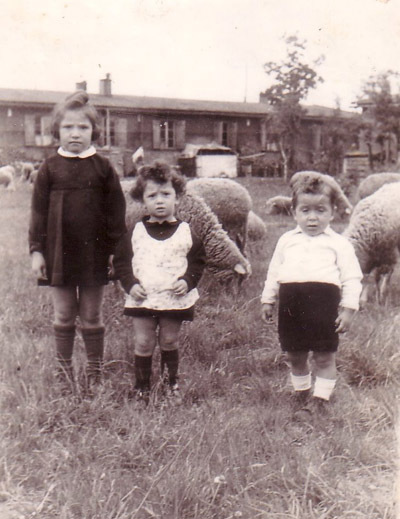
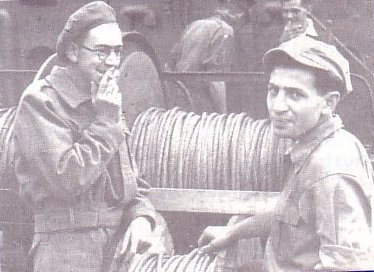
Machalmik Issy Granot (Greenberg) and Piet Groenewalt on board the Drom Afrika who observed the Exodus saga unfold in Haifa harbor.
